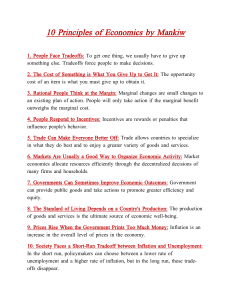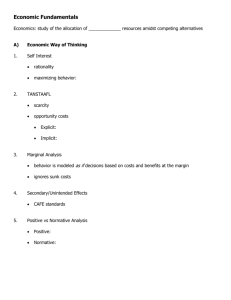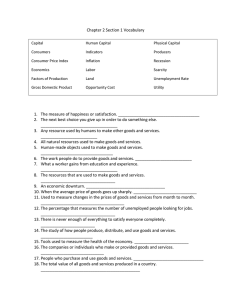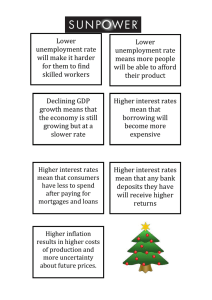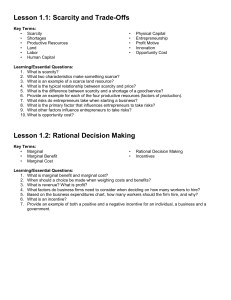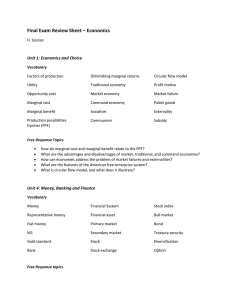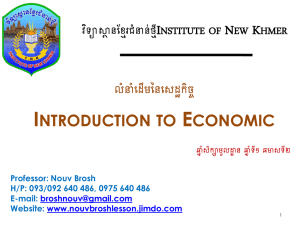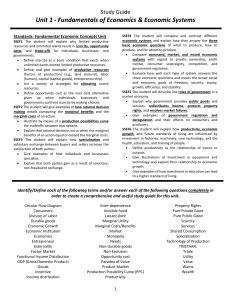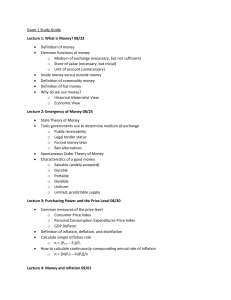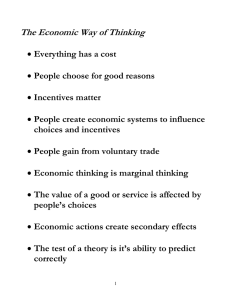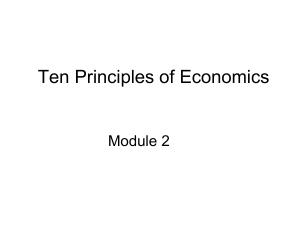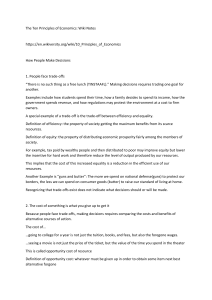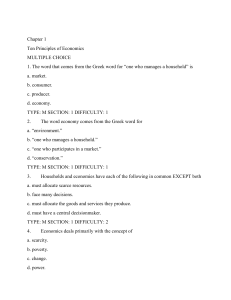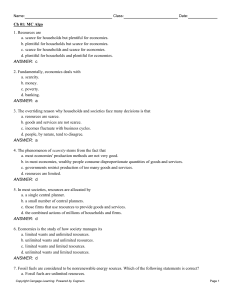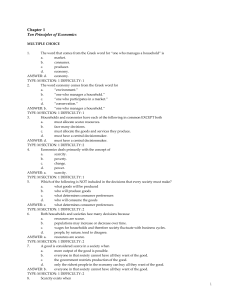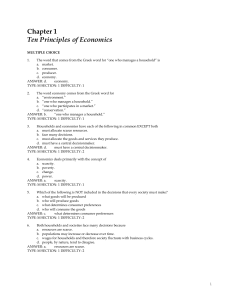Semester Economics 1 Quarter Plan
advertisement
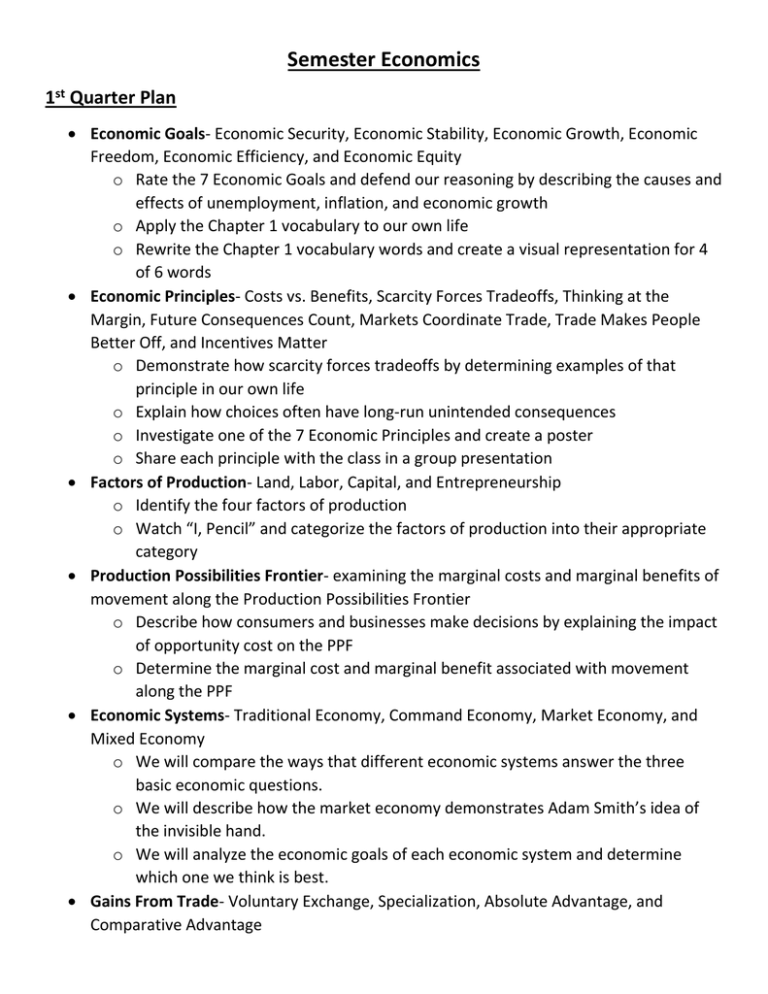
Semester Economics 1st Quarter Plan Economic Goals- Economic Security, Economic Stability, Economic Growth, Economic Freedom, Economic Efficiency, and Economic Equity o Rate the 7 Economic Goals and defend our reasoning by describing the causes and effects of unemployment, inflation, and economic growth o Apply the Chapter 1 vocabulary to our own life o Rewrite the Chapter 1 vocabulary words and create a visual representation for 4 of 6 words Economic Principles- Costs vs. Benefits, Scarcity Forces Tradeoffs, Thinking at the Margin, Future Consequences Count, Markets Coordinate Trade, Trade Makes People Better Off, and Incentives Matter o Demonstrate how scarcity forces tradeoffs by determining examples of that principle in our own life o Explain how choices often have long-run unintended consequences o Investigate one of the 7 Economic Principles and create a poster o Share each principle with the class in a group presentation Factors of Production- Land, Labor, Capital, and Entrepreneurship o Identify the four factors of production o Watch “I, Pencil” and categorize the factors of production into their appropriate category Production Possibilities Frontier- examining the marginal costs and marginal benefits of movement along the Production Possibilities Frontier o Describe how consumers and businesses make decisions by explaining the impact of opportunity cost on the PPF o Determine the marginal cost and marginal benefit associated with movement along the PPF Economic Systems- Traditional Economy, Command Economy, Market Economy, and Mixed Economy o We will compare the ways that different economic systems answer the three basic economic questions. o We will describe how the market economy demonstrates Adam Smith’s idea of the invisible hand. o We will analyze the economic goals of each economic system and determine which one we think is best. Gains From Trade- Voluntary Exchange, Specialization, Absolute Advantage, and Comparative Advantage o We will examine how individuals, organizations, and nations benefit from trade. o We will evaluate how voluntary exchange increases the wealth of an economy by trading within small groups, larger, groups, and the entire classroom. o We will define and give examples of specialization, division of labor, voluntary exchange, barter, money, economic interdependence, absolute advantage, and comparative advantage. o We will evaluate the benefits of trade and the consequences of opening up trade internationally. o We will examine the benefits of specialization in the economy. o I will determine comparative advantage in various economic scenarios Measuring the Economy- understanding and interpreting Gross Domestic Product, Unemployment Rate, and Inflation o We will demonstrate knowledge of a nation’s economic goals, including full employment, stable prices and economic growth, by describing economic indicators such as gross domestic product (GDP), consumer price index (CPI), and unemployment rate. o We will list the components that make-up GDP. o We will evaluate why there are a variety of ways to measure the economy by explaining the limitations of each measurement. o We will describe the causes and effects of inflation by analyzing the effects of inflation on our purchasing power. o We will determine the limitations to each mode of measuring the economy.

